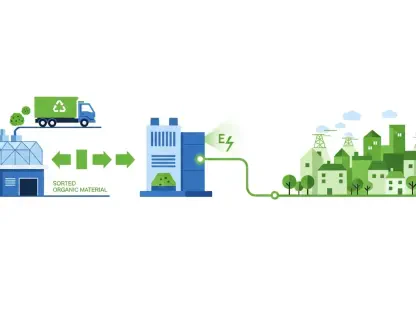In an era where climate change poses an increasing threat, a coalition led by France and Spain, backed by other nations, is championing a novel strategy to mitigate environmental impacts through taxation on luxury air travel. The initiative, revealed at a United Nations development summit, is simple yet potentially transformative. It targets private jets and premium class flights, aiming to raise substantial revenue dedicated to climate action. This approach not only seeks to curb the greenhouse emissions associated with aviation’s high-polluting sectors but also endeavors to remedy the recent reduction in official aid from wealthier nations. By redirecting funds towards developing countries, this strategy plans to bolster efforts in decarbonization and climate adaptation, marking a significant step in sustainable development.
Taxing Private Jets: A New Financial Frontier
Potential Revenue from Luxury Flights
The proposal to impose taxes on luxury air travel holds the promise of generating significant revenue, highlighted in a study by the Global Solidarity Levies Task Force. According to this study, taxing private jets and premium class commercial flights could yield upwards of €78 billion annually. Given the growing demand for high-end travel, particularly in the wake of the COVID-19 pandemic, this revenue stream could increase if such levies are more broadly applied to other commercial jets. This promising financial tool reflects a broader trend where innovative funding paths are sought to fill the gaps left by dwindling official development aid.
Such a tax presents a compelling opportunity to harness economic resources mobilized by high-emission activities, redirecting them towards green initiatives. By focusing on a small but powerful minority who contribute disproportionately to carbon emissions, the system seeks to instill greater accountability and responsibility among frequent global travelers. This initiative finds its foundation in the stark contrast between the luxury of these flights and the consequential environmental cost, paving the path for sustainable financial backing for climate action strategies.
Private Jets and Environmental Impact
The impact of private jets on the environment is significant. Recent data highlighted that these planes emitted an alarming 19.5 million tonnes of greenhouse gases in the past year alone. This statistic underscores the urgent need to address the disproportionate ecological footprint of luxury air travel head-on. The rise in private jet usage, especially post-pandemic as global travel resumes, exacerbates the challenge of reducing aviation’s contribution to climate change.
By taxing this specific segment, the coalition aims to address the unequal contributions to global carbon emissions. The luxury of private jet travel often translates to a higher per-capita environmental cost, amplifying the ecological imbalance. Creating a tax on these flights not only serves as a deterrent but also as a critical funding source for environmental initiatives. This tactic exemplifies an effort to hold high flyers accountable and push for shared responsibility in tackling global environmental challenges.
Broadening the Initiative: Global Consensus and Support
Gaining Global Support and Implementation Progress
The taxing initiative aligns with a growing consensus on holding those benefiting most from global travel accountable for their environmental impact. The approach echoes the progress achieved in other sectors, such as international shipping, where emissions are being tackled more robustly. The momentum for this strategy is bolstered by strong public support. Surveys conducted by organizations such as Greenpeace and Oxfam reveal a substantial majority of the general public favor taxing premium flyers. This public backing is rooted in the awareness of their disproportionate climate impact, further intensifying calls for equitable climate solutions.
Guided by this support, policymakers within the coalition are hard at work to implement these taxes effectively across different jurisdictions. The collaboration extends to harmonizing efforts globally to ensure effective implementation and evasion prevention. Achieving this consensus is not without its challenges; however, it also underscores the global urgency in addressing climate change impacts. The involvement of influential nations like France and Spain underscores the coalition’s significant sway in pushing for a comprehensive global implementation.
Future Implications for Climate Finance
Ultimately, this multinational effort emphasizes the urgent need to find alternative and robust funding avenues for climate-related initiatives. By taxing high-emission contributors within aviation, the coalition aims to secure financial resources critical for supporting the environmental transition globally. The path forged by this coalition signals a paradigm shift towards sustainable climate finance strategies, setting a precedent for other sectors to follow suit. While the challenge is formidable, the potential benefits extend far beyond immediate financial returns.
The implications of this strategy suggest possible pathways for expanded international cooperation. By involving countries from around the world in similar missions, there’s potential to create a ripple effect, wherein the responsibility for environmental stewardship is collectively embraced. This shift would not only secure necessary funding for climatic adaptations but would also foster a global community deeply committed to sustainable progression, resilient communities, and a healthier planet for future generations.
Charting the Course Toward Sustainable Aviation
The proposal to tax luxury air travel, highlighted by the Global Solidarity Levies Task Force, promises considerable revenue generation. The study suggests that taxing private jets and premium commercial flights might yield over €78 billion yearly. This lucrative opportunity, fueled by rising demand for high-end travel post-COVID-19, could grow further if taxes were applied broadly to other commercial flights. Such taxes exemplify the quest for innovative financial solutions amid reduced official development aid. This initiative aims to channel resources from high-emission activities into green projects, targeting a wealthy minority who disproportionately impact carbon emissions. It encourages greater accountability among frequent flyers. The effort underscores the stark divide between luxurious travel and its environmental toll, paving a way for sustainable funding of climate strategies. This approach emphasizes using economic growth from luxury travel for ecological benefit, promoting both accountability and responsibility in curbing emissions.









